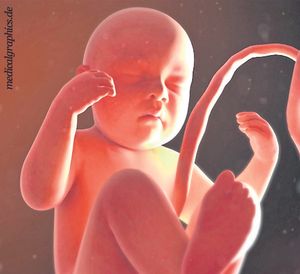Crawford Gribben interviews Dr Everett Julyan
In early October 2000, national newspapers gave substantial coverage to a rather unusual case of discrimination – or at least a type of discrimination we are rarely allowed to hear about.
The case was featured on the front page of theScottish Daily Mail and gained further valuable exposure in The Daily Telegraph, The Guardian, The Herald (a Scottish national newspaper), Hospital Doctor, GP Magazine, the Scottish Catholic Observer and even the BBC website.
At the centre of it all was the outstanding academic record and evangelical faith of a young junior doctor from Glasgow. This month, ET catches up with Dr Everett Julyan.
Abortion
ET: Everett, you were recently in the media spotlight. Can you tell us what this was about?
Julyan: I am a junior doctor in Glasgow. In March this year I was denied a place on a General Practice training scheme because I said I would have nothing to do with training that involved abortion.
At the interview I was asked if I was willing to prepare women to undergo abortion, and I said ‘no’. The next day I was informed that I had not been awarded a post, solely because of this answer.
A reporter from the Scottish Daily Mail heard of this and ran a story after interviewing me. Fifty years ago, any doctor performing abortions in Britain would have been prosecuted for what was then considered to be a ‘crime against humanity’. But in 2000, doctors are denied employment if they refuse to help terminate the life of a human being.
ET: How did you come to hold these views on abortion?

Julyan: I believe abortion to be wrong on three counts. Firstly, I believe that the Bible is God’s Word and that this is his world. God knows best, and his directions, as found in the Bible, should therefore be followed.
The 6th Commandment is ‘Do not murder’. Other parts of the Bible teach us to defend, protect and preserve life. I believe that abortion ends the life of a human being (albeit at an early stage of development) and therefore breaks God’s commandment. In my opinion abortion is only justified when the mother would otherwise die.
Secondly, abortion is contrary to what Medicine is all about, at least historically. The Hippocratic Oath, the Declaration of Geneva, and pre-1950 statements by the British Medical Association, are all united in condemning abortion as a crime against humanity. Until recently, doctors have been in the business of preserving life, not ending it.
Preserving life
Thirdly, doctors should only ever act in their patient’s best interests. Women who have abortions often find themselves condemned to a life of guilt and isolation. Many find it difficult to come to terms with the fact that they have killed their unborn child.
God’s commandments are for our good. Imagine what a wonderful world it would be if everyone obeyed the Ten Commandments! To disobey the command not to murder cannot be in our best interests.
ET: Are you the first Christian doctor to take this stand and suffer?
Julyan: There is substantial anecdotal evidence of similar discrimination against doctors with Christian morals, who refuse to compromise their principles by giving in to the latest trend in the medical world.
In 1996 the Christian Medical Fellowship did a survey of their members and found that 14% felt they had been discriminated against because of their stance on abortion.
My case is different because I was specifically informed (albeit only verbally) that I lost the job solely because of my views on this issue. In medicine you are not usually told why you are not offered a post.

ET: What have you learned from your experience?
Julyan: That the fall of an entire building may start with a single crack. It has reinforced the need to have convictions about what Scripture teaches on issues you are likely to face, before you face them. To be prepared to act on these convictions, regardless of the consequences.
If I had compromised to get the job, I would now be assisting in the abortion process, helping to end the lives of vulnerable human beings.
Moral trends
ET: Where are current moral trends in the medical world leading?
Julyan: Trends in the medical world reflect those in society. Until about fifty years ago, British values were largely based on Scripture, but this is seldom the case today. Medical morals follow society’s morals: doctors are, after all, only public servants.
In addition to saving lives and alleviating suffering, contemporary medicine seeks to meet human wants and perceived needs. Since these wants and needs spring from sinful human hearts, it is little wonder that doctors are drifting further and further from God’s standards as they seek to meet them.
ET: How should we view recent developments in genetics?
Julyan: God originally gave man the potential to rule over creation and subdue the earth. Since the Fall this is still true, but to a greatly reduced extent.
Human discoveries and technologies help us to master our environment. The phenomenal technologies we have today, such as gene therapy, can indeed be used to God-honouring effect, and great good.
However, currently agreed codes of ethics are increasingly based on human consensus rather than divine revelation, on medical majority rather than spiritual morality.
We are now in the position that, while we are able to do certain things, we are not necessarily sure that we should do them. Genetic technology itself is morally neutral, but the way we use it can be good or bad.
ET: How can we best pray for Christians in the medical world?
By employing the Nike principle: ‘Just do it!’ Pray that we would know our God (Daniel 11:32); know his ways (Isaiah 55:8-9); be transformed by the renewing of our minds (Romans 12:2); work hard as Christian witnesses (Philippians 2:14-16, Colossians 3:23); and be courageous when it comes to standing up for God’s truth in an increasingly hostile environment.
The interview took place by correspondence and has been edited








